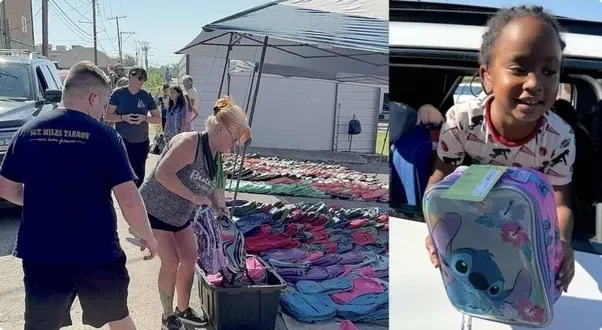Teen Donates $1.3M in School Supplies
An 18-year-old from Oklahoma organized his ninth annual Back-to-School Book Bag, distributing 6,000 backpacks filled with school supplies.
Over the past nine years, the event has provided more than 33,000 backpacks and $1.3 million worth of supplies to students and families in Reed Marcum’s hometown and neighboring states including Oklahoma, Texas, and Arkansas. The drive-thru event is part of Reed Marcum’s efforts to support the McAlester community in Pittsburg County.
“I want to help kids get their school year started right,” said Reed, a rising sophomore at Oklahoma State University. “We’ve been doing this for nine years, and it’s fulfilling to know we’re helping kids get excited about their education.”
Inspired by his involvement in 4-H, a youth organization focused on leadership, Reed’s giveaway is part of his annual 4-H service project. His work has earned him the 4-H Youth in Action Award and national recognition, including a $5,000 scholarship and opportunities to network with 4-H alumni. Since 2016, Reed has also hosted an annual 4-H Toy Giveaway. Last year’s event saw over three miles of cars lined up at the Southeast Expo Center in McAlester, where he distributed more than 10,000 toys.
“I’m grateful to 4-H for the support and opportunity to make a difference in my community.” Reed’s efforts are supported by the Sergeant Miles Tarron Foundation and Hudson Strong. To contribute, click here.
